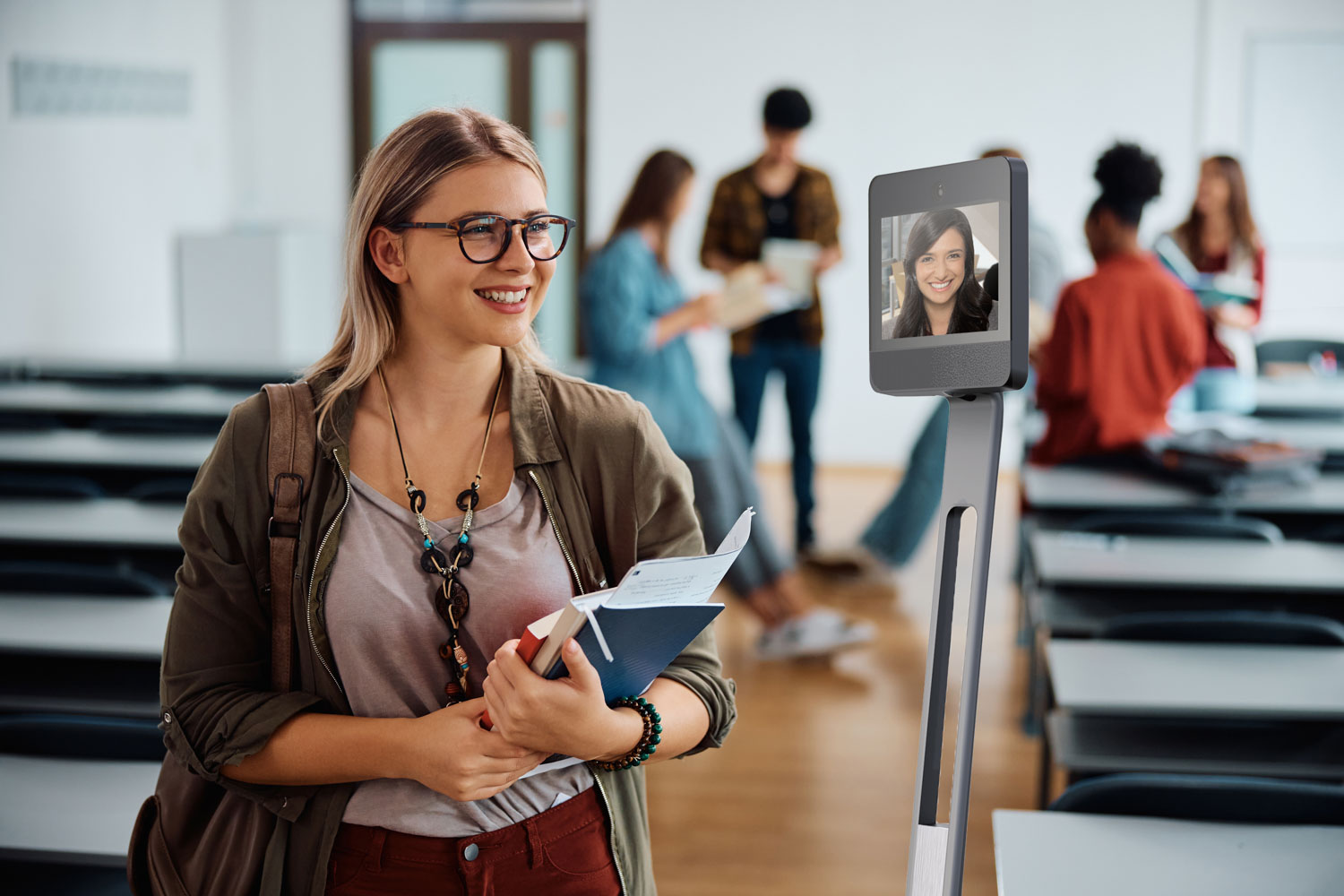About
5G METRO
Revolutionizing Education Through Telepresence and 5G Technology
The 5G Metro project is a groundbreaking initiative designed to foster inclusivity in education by deploying a state-of-the-art 5G Standalone network infrastructure at Université Côte d’Azur’s Mediterranean Institute of Risk, Environment, and Sustainable Development (IMREDD) in Nice, France. This transformative project enables the use of telepresence robots, offering an immersive and interactive learning experience for remote students, particularly those facing social isolation due to hospitalization or home care.
Addressing the Challenges of Distance Learning
In a world increasingly shaped by digital transformation, distance learning is essential for ensuring accessibility and flexibility in education. However, students confined to home or hospital settings often struggle with feelings of isolation, limiting their engagement and participation in educational activities.
The 5G Metro project bridges this gap by harnessing the high-speed, low-latency capabilities of 5G technology to create a more inclusive and dynamic learning environment.

Objectives and Vision
People at the Centre
The 5G Metro project places a strong emphasis on a human-centered approach. By integrating real-time video communication with mobile telepresence robots, the initiative enhances the distance learning experience for remote students. These robots are designed to navigate beyond the classroom, providing a more authentic and engaging interaction with peers and teachers across the university campus.
BoostingTechnology Adoption
The project democratizes access to cutting-edge technologies such as telepresence and edge computing, paving the way for their widespread adoption in higher education. It also aligns with broader digital transformation and e-Health initiatives, showcasing the potential of 5G-enabled solutions in various sectors.
Buildingon Expertise
Leveraging its role as a member of the Ulysseus Alliance, Université Côte d’Azur will collaborate with related projects. These partnerships enable the exchange of best practices, the acceleration of validated use cases, and the enhancement of social acceptance for innovative technologies.
Expected Outcomes
The 5G Metro project aims to deliver a fully functional 5G Standalone network integrated with telepresence robots tailored for educational purposes. Key outcomes include:
-
Inclusive Learning: Remote students can actively participate in classes, interact with peers, and access resources, fostering both academic success and emotional well-being.
-
Technology Use Cases: Development of three new 5G-enabled use cases, benefiting over 800 individuals within the university.
-
Scalability and Replication: The standardized, interoperable infrastructure is designed for easy replication across other universities and countries, driving broader adoption of inclusive educational technologies.
Broader Impact
Higher education plays a vital role in addressing Europe’s social and democratic challenges. By focusing on inclusion and leveraging duplicable 5G-based solutions, the 5G Metro project supports the EU’s commitment to creating accessible, community-connected educational institutions. Additionally, the seamless navigation capabilities of the telepresence robots hold promise for diverse applications, from industrial automation to healthcare assistance, ensuring relevance for a wide range of stakeholders.



